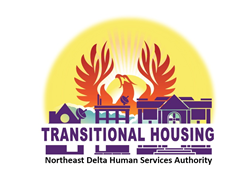
NEDHSA’s Transitional Housing Efforts Provide Hope and Help for Homeless
“So many people in our region aren’t able to thrive and reach their full human potential due to the lack of adequate housing. Some are homeless for a short period of time. Others are chronically homeless, in jail, on the street, or in shelters,” Dr. Sizer said.
MONROE, La. (PRWEB)
September 28, 2021
Northeast Delta Human Services Authority’s (NEDHSA) transitional housing efforts work to provide recovery-focused, individualized care for its homeless mental health and addictions clients through a partnership with EasterSeals Louisiana.
NEDHSA Executive Director Dr. Monteic A. Sizer said the agency is working diligently to integrate traditional mental health, developmental disability, prevention, and addictive disorder services with housing and related social supports “to help meet the comprehensive needs of our clients.”
“So many people in our region aren’t able to thrive and reach their full human potential due to the lack of adequate housing. Some are homeless for a short period of time. Others are chronically homeless, in jail, on the street, or in shelters,” Dr. Sizer said. “We established our transitional housing capacity to help address the needs of our clients who suffer from mental illness, various addictions, primary health care challenges, food insecurity, unemployment, and a host of other social problems.”
NEDHSA formed a partnership with EasterSeals Louisiana to help operationalize its transitional housing efforts and peer support center. Both NEDHSA funded programs offer an array evidence-based mental health, addictions, life skills training, workforce development, prevention and wellness options, and case management services.
EasterSeals Louisiana Vice-President and Clinical Director Eric Odom said the organization is proud to partner with NEDHSA “on the provision of this extremely vital service.”
“Transitional Housing is a service designed to accept persons experiencing homelessness literally and immediately off of the streets,” Odom said. “It allows for stabilization to occur while longer-term housing options and services are put into place.”
NEDHSA also plans to restart its Phoenix Houses, or Level III gender-specific recovery housing services for drug and alcohol using pregnant women, and women with children who are prone various forms of addiction. Participants will also be linked to primary care, employment, educational, transportation, and daycare opportunities.
Dr. Sizer said NEDHSA’s transitional housing efforts and partnerships stem from the need he saw years ago when looking for help to serve clients who were mentally ill, drug addicted, and homeless.
“While housing the homeless is not our core business, we saw a need to build a more robust housing continuum for this region’s vulnerable homeless and marginally housed populations. While much more needs to be done, we did do something. And we will continue to highlight the need for affordable housing options for those battling mental illness, addiction, food insecurity, unemployment, and developmental disability in our region.”
To learn more about NEDHSA’s transitional housing efforts, tune in on September 30 to Transformations Thursday at 12 noon via Facebook Live at Northeast Delta Human Services Authority.
Share article on social media or email:

